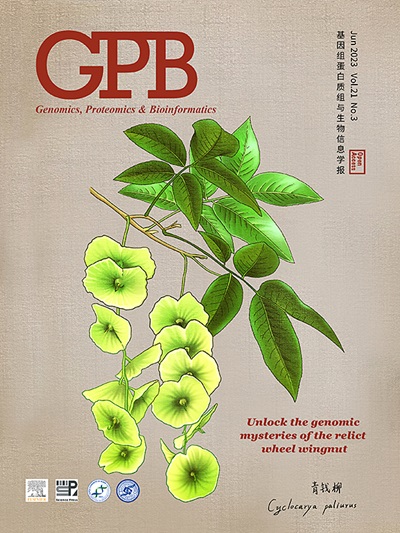Preclinical-to-clinical Anti-cancer Drug Response Prediction and Biomarker Identification Using TINDL
IF 7.9
2区 生物学
Q1 GENETICS & HEREDITY
引用次数: 0
Abstract
Prediction of the response of cancer patients to different treatments and identification of biomarkers of drug response are two major goals of individualized medicine. Here, we developed a deep learning framework called TINDL, completely trained on preclinical cancer cell lines (CCLs), to predict the response of cancer patients to different treatments. TINDL utilizes a tissue-informed normalization to account for the tissue type and cancer type of the tumors and to reduce the statistical discrepancies between CCLs and patient tumors. Moreover, by making the deep learning black box interpretable, this model identifies a small set of genes whose expression levels are predictive of drug response in the trained model, enabling identification of biomarkers of drug response. Using data from two large databases of CCLs and cancer tumors, we showed that this model can distinguish between sensitive and resistant tumors for 10 (out of 14) drugs, outperforming various other machine learning models. In addition, our small interfering RNA (siRNA) knockdown experiments on 10 genes identified by this model for one of the drugs (tamoxifen) confirmed that tamoxifen sensitivity is substantially influenced by all of these genes in MCF7 cells, and seven of these genes in T47D cells. Furthermore, genes implicated for multiple drugs pointed to shared mechanism of action among drugs and suggested several important signaling pathways. In summary, this study provides a powerful deep learning framework for prediction of drug response and identification of biomarkers of drug response in cancer. The code can be accessed at https://github.com/ddhostallero/tindl.
基于TINDL的临床前到临床抗癌药物反应预测和生物标志物鉴定。
预测癌症患者对不同治疗的反应和识别药物反应的生物标志物是个体化医学的两个主要目标。在这里,我们开发了一个名为TINDL的深度学习框架,该框架完全针对临床前癌症细胞系(CCL)进行训练,以预测癌症患者对不同治疗的反应。TINDL利用组织形成的标准化来说明肿瘤的组织类型和癌症类型,并减少CCL和患者肿瘤之间的统计差异。此外,通过使深度学习黑匣子具有可解释性,该模型识别了一小组基因,这些基因的信使RNA(mRNA)表达水平可以预测训练模型中的药物反应,从而能够识别药物反应的生物标志物。使用来自CCL和癌症肿瘤的两个大型数据库的数据,我们发现该模型可以区分10种(14种)药物的敏感肿瘤和耐药性肿瘤,优于其他各种机器学习模型。此外,我们对该模型为其中一种药物(他莫昔芬)鉴定的10个基因进行的小干扰RNA(siRNA)敲除实验证实,在MCF7细胞中,他莫昔芬敏敏感性受到所有这些基因的显著影响,在T47D细胞中,这些基因中有7个受到影响。此外,涉及多种药物的基因指出了药物之间的共同作用机制,并提出了几个重要的信号通路。总之,本研究为癌症药物反应的预测和药物反应生物标志物的识别提供了一个强大的深度学习框架。代码可访问https://github.com/ddhostallero/tindl.
本文章由计算机程序翻译,如有差异,请以英文原文为准。
求助全文
约1分钟内获得全文
求助全文
来源期刊

Genomics, Proteomics & Bioinformatics
Biochemistry, Genetics and Molecular Biology-Biochemistry
CiteScore
14.30
自引率
4.20%
发文量
844
审稿时长
61 days
期刊介绍:
Genomics, Proteomics and Bioinformatics (GPB) is the official journal of the Beijing Institute of Genomics, Chinese Academy of Sciences / China National Center for Bioinformation and Genetics Society of China. It aims to disseminate new developments in the field of omics and bioinformatics, publish high-quality discoveries quickly, and promote open access and online publication. GPB welcomes submissions in all areas of life science, biology, and biomedicine, with a focus on large data acquisition, analysis, and curation. Manuscripts covering omics and related bioinformatics topics are particularly encouraged. GPB is indexed/abstracted by PubMed/MEDLINE, PubMed Central, Scopus, BIOSIS Previews, Chemical Abstracts, CSCD, among others.
 求助内容:
求助内容: 应助结果提醒方式:
应助结果提醒方式:


